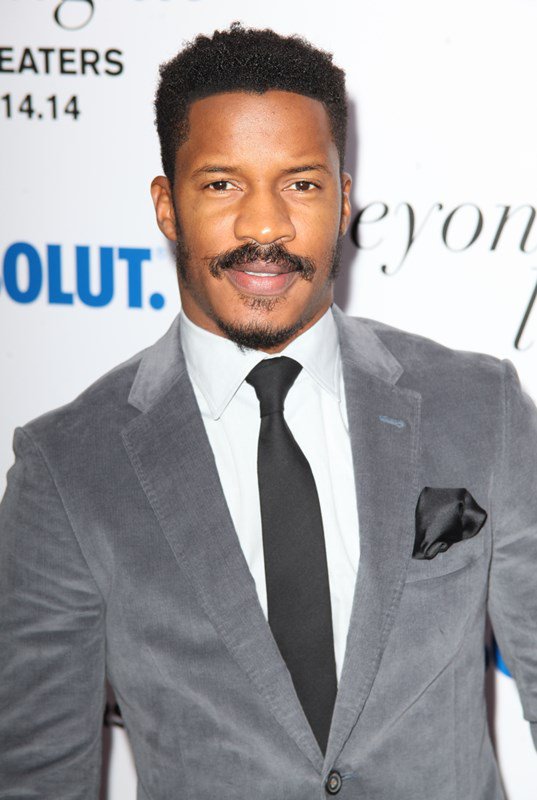Black women and Nate Parker



Yesterday, The Atlantic posted an article called, “Why the Debate Over Nate Parker Is So Complex.” outlining how, for black women especially, the conversation surrounding Nate Parker’s rape allegations and the future of The Birth of a Nation is really f-cking complicated.
As a black woman, I will say that “f-cking complicated” is an understatement. For days, I have been trying (and failing) to write something that accurately articulates my feelings on Nate Parker. I shared some initial thoughts on the issue when Parker first spoke to Deadline about his rape case. At the time, I struggled with whether or not The Birth of a Nation was still worthy of our time and money. I struggled with the racial implications of a rising black star in Hollywood – the rising black star in Hollywood—being outed as an alleged rapist.
In the past week, as more details have emerged about Nate Parker’s case, I have been accused of putting my race over my role as a feminist. I can’t tell you what it’s like to have someone imply that I have to choose between my blackness and my vagina. Frustrating and insulting are two words that come to mind. Last week, I would have told you that my gender and my race are things that define me but they are not independent of each other. This week, the lines are less blurred than I thought they were.
Aside from the disturbingly incriminating facts we now know about Parker and his co-writer/ former roommate Jean Celestin, it has also come to light that their alleged victim was white. Maybe that shouldn’t matter but at the time of the case, the Penn State campus was reportedly divided by gender and race as black student groups battled women’s rights groups. The history of racism towards black men and rape is long and very much real. As Morgan Jerkins for The Atlantic notes:
Throughout American history, the supposed hypermasculinity and sexual appetites of black men have been stereotyped and fearmongered as a threat to innocent white women. Awareness of this is presumably what compels black men to believe, and therefore protect, other black men at any cost.
That is partly why this story is so complicated for black women. When I looked at Nate Parker’s face a week ago, I saw my cousins, brothers, uncles and friends who are black men. I saw their faces in his. And for every black man who commits a crime, there’s a bigot who sees that man in my brother’s face when he walks down the street. I wanted these beautiful black men to be seen for the successful, complex, smart, capable human beings they are, instead of thieves, murderers or rapists. To me, that is what representation is about. Am I worried that seeing Nate Parker’s face beside the word “rapist” every day until awards season will negatively affect the perceptions of those black men in my life? Absolutely. But I’m also worried about the system in which we live that continues to protect powerful men and fail rape victims. I’m going to borrow from Complex to drive this home: “We know the justice system will fail Black and Brown people… but the justice system fails the victims of sexual assault just as routinely.”
Prominent male members of the black community like Al Sharpton and Charlamagne Tha God have come out in support of Nate Parker. They have added to this notion that somehow black women are betraying our race if we believe Parker’s accuser. They have dismissed Parker’s rape allegations as a conspiracy developed to stop a black man from succeeding. But this is not the case of an innocent black man falling victim to institutionalized racism. This is the case of another powerful man being protected by his achievements and his talent while another woman loses her body and her life to an institution that favours men and systematically fails victims of rape.
Apparently, there is a horrific rape scene in The Birth of a Nation that serves as a pivotal moment in the film. This scene has now become a poignant piece in the puzzling mess that is Nate Parker’s narrative. Jerkins asks:
How can we watch this scene knowing what we know now about Parker? Can we only discuss rape when the attacker is a white man, as if black men are exempt from benefitting from a patriarchal society?
I cannot watch a rape scene in a film made by a person I believe to be a rapist. Maybe my “womanhood” is winning over my race here or maybe it’s just my compassion. Maybe it’s just, as Roxane Gay wrote for the New York Times, I’ve lost the ability to feel empathetic towards Nate Parker, no matter what he looks like. Like Roxane, I have abandoned the belief that you can support The Birth of a Nation without supporting Nate Parker.
A reader named Kerry wrote to us about her views on Nate Parker as a black woman. I’ll leave you with what she wrote:
“I am not prepared to support a black man who calls himself an activist yet does not appear to equate women's issues with black issues.”

